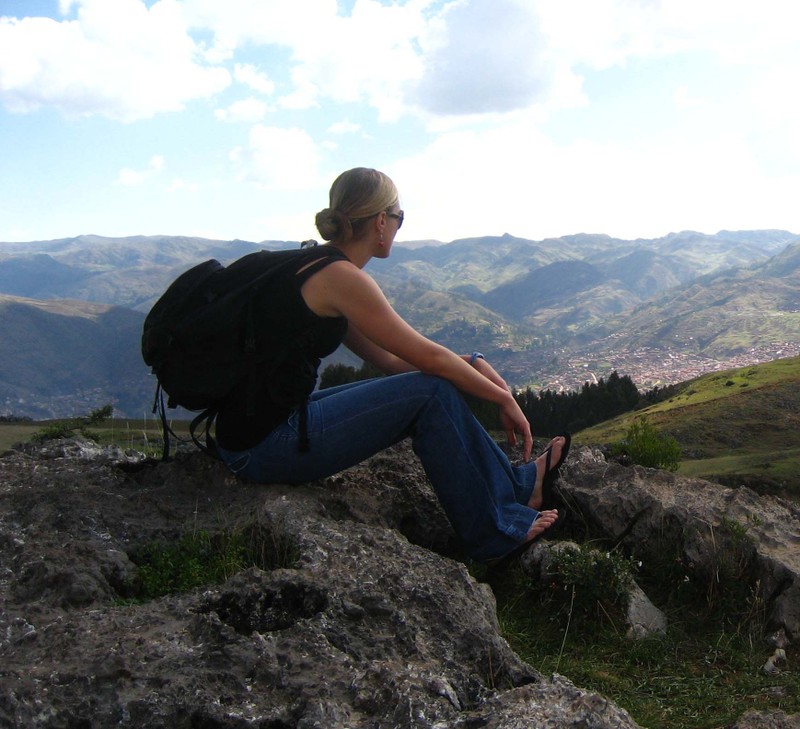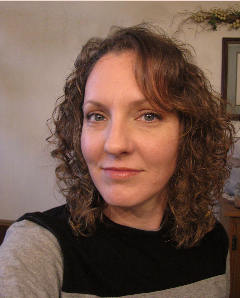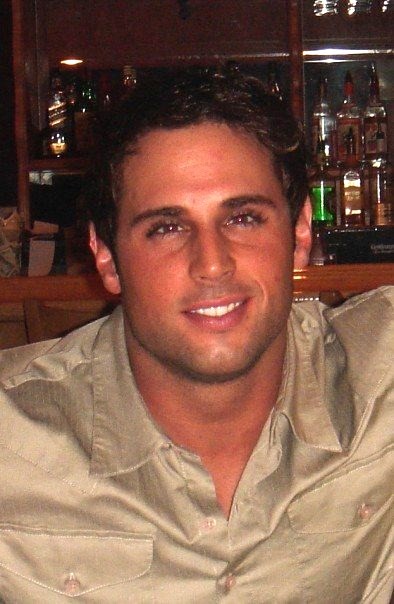By Ann Peters
Pulitzer Center
November 19, 2008
http://pulitzercenter.typepad.com/news_points/2008/10/projectreport-s.html
They tell the stories of undocumented workers and a soup kitchen manager, a former addict-turned-counselor and a homeless vet, a Native American grandmother and a North Carolina dairy farmer. Profiles of individuals of significance in their communities.
They are the 10 semi-finalists from some 100 entries in Round 1 of the joint Pulitzer Center/YouTube Project:Report. And they are embarking on Round 2 with an assignment to tell a local story with a global impact.
They shared with us a bit about themselves and their thinking on where journalism is going today. We thought we'd pass along the information so you'd get to know them and their work better. They range in age from 24 to 42. There are five graduate students, a stay-at-home mom, a production assistant, a novelist/freelancer and two graduates working a variety of jobs or involved in job searches.
 |
Today Torrey Meeks lives in Las Cruces, NM, working from home as a novelist, video editor and freelance Torreybw1crop_2 writer. His path to Las Cruces came by way of stints as a combat medic in the US Army, long-haul truck driver, stone mason, and a variety of jobs in restaurants. He spent time traveling across the US on his motorcycle. His honorable discharge from the Army came on the same day as the Iraq war began.
Torrey profiles Yolanda Dimas, manager of the El Caldito soup kitchen in Las Cruces. The video reaffirmed many of the things he's learned over the years especially when his mother tried to raise three boys alone. In the video, Yolanda shares her post-divorce transition from a life of plenty to a life of little and her hectic - yet fulfilling - day job. As soup kitchen manager, she oversees production of some 5,000 meals a month, between 230-270 a day. Torrey's imagery and Yolanda's words mesh together to show the fast-paced nature of running a feeding station for the community.
"Journalism is a springboard for conversation," Torrey says. "Yes, there can be an awful lot of yelling. But a loud, lusty conversation beats the hell out of the alternative. And, as I discovered on my cross-country motorcycle trip, the more we talk to each other directly, the more we find common ground. The more common ground, the more respect we grant one another."
Common ground is what Reggie Jackson of Prevention Works! has with those he meets every day in his role as team leader with the organization that provides mobile needle exchange and other harm reduction services in Washington, D.C The nation's capital has the highest rate of new AIDS cases in the country -- an estimated 1 in 20 residents living with HIV. Reggie is a former addict and has been HIV-positive for more than 20 years.
 |
Jane Hendrick profiles Reggie in her Project:Report entry. Jane had been interested in Prevention Works! for some time, and she thought Project:Report a good venue to raise awareness about a cause she cares about in her backyard. A Georgetown University graduate, Jane is a production assistant for Lucky Dog Films, a production company based in Bethesda, MD."The contest itself is an indication of the changing landscape of journalism. For many of us, newspapers and television are no longer our go-to source for the news," Jane says. "From sites like YouTube to podcasts, to blogs, to the online versions of newspapers, the internet has created a plethora of information outlets. Not only are these outlets making the news more accessible, but they are also making it easier for average people to move beyond just consuming the news to actually engaging in it."
The internet, Jane says, "is empowering a new generation of reporters to tell the stories that are important to them and their communities."
 |
For Rhonda LeValdo, her community is Acoma Pueblo, NM. Her video focused on her grandmother, Rachel Blackwater, and by extension her two children and her Native American heritage. "My children are why I try to get Native American Indians in the mainstream media," Rhonda says. "American Indians have very few stories that are told, unless it is protesting or a powwow."
Rhonda is a journalism graduate student at the University of Kansas, and she broadcasts a radio show called Native Spirit Radio on Kansas City's KKFI. She also is an instructor in video production at Haskell Indian Nations University, one of 34 tribal colleges for American Indians. In learning about video production, Rhonda says, "I realized our people need to be telling our stories, and by teaching our youth on what they can do with a camera, that will open the door to others to tell their own tribes' stories."
 |
The entry by Sara Peach is also a generational story though not from her family. Sara tells the story of Bob Nutter, a fifth-generation North Carolina dairy farmer reinventing his Maple View Farm to survive for the next generation. From bottling its own milk in glass jugs to keeping the cream to produce farm-fresh ice cream, Bob and his farm are a story of survival. The farm is down the road from where Sara is pursuing a master's degree at the School of Journalism and Mass Communication at the University of North Carolina-Chapel Hill, and not too far from her hometown of Durham, NC. She hopes to pursue a career in environmental journalism, though "it's a scary time to start a career as a journalist."
"There's a huge growth in online opinion-makers, but with fewer facts to inform the opinions, the public may have a hard time separating truth from misinformation," Sara says. "I'm confident though that in the long run, journalism will live on. We'll just tell our stories in new ways."
 |
Another UNC-Chapel Hill master's student made the cut in Project:Report - Eileen Mignoni who is focusing on photojournalism and multimedia. Eileen has worked as a photographer in Chicago hip hop clubs and for a market research firm, though she admits she didn't use her first single-lens reflex camera until about six years. Eileen took on the subject of Isabel, who came to the US at 13 and is the only undocumented resident in her family at 29. She worries for her daughter if she is sent back to her country.
Eileen captures Isabel's dilemma interspersing still shots with her subject interviewed in silouette. "As I did this story, I felt and still feel a strong bond with Isabel. My telling this story is the only way I, as a journalist, can help her," Eileen says. "I hope that (the video) can make the people viewing the story think twice about immigration policies and understand that each situation is different. It cannot be an us again them dialogue, but rather, it needs to be thought of as the tales of many individuals and the public needs to consider the impact of policies on individuals."
 |
Immigration took center stage for Sandra C. Roa in her profile of Marco, who came to the US 10 years ago from Mexico in search of work. He left behind his family and tells of his life as a day laborer in New York. He shares footage from his daughter's quinceanera - marking her 15th birthday - and the video message he sent to her. Sandra met his family and shared the realities of Marco's life - they learned that life in New York was not as easy as they imagined. "This story is valuable and provides access to viewers from both sides of the US-Mexico border a closer look at the lives affected," Sandra says. ""Perspective is essential in powerful storytelling and Marco's words provided this by emphasizing his lose as a parent."
Sandra is a first-generation Colombian-American born in Jackson Heights, Queens. She is in the master's program at CUNY's School of Journalism, focusing on international reporting and also teaches digital photography at the International Center of Photography.
 |
Vanessa Tolino moved out of New York to find her Project:Report entry. She moved to New Orleans fromVtolino3 Brooklyn three years ago, one month after Hurricane Katrina and she is directing what she calls a long-term observational documentary about one family's recovery from Katrina. To make a living, she worked as a researcher for Katrina's Children, a camera shooter for Landfall: In the Eye of the Storm, a still photographer for a demolition company, an 8th grade literacy teacher, and a teacher of drama, photography and filmmaking in an after-school program for at-risk youth. He is pursuing a master's degree at Tulane University.
Resurrection after Exoneration is her first short journalism piece. Its focus: those exonerated after spending years in Louisiana prisons. "Three minutes sounded very intimidating after spending three years shooting a feature length film," Vanessa says. "But I was amazed by how much visual information fits into a small space. : It was thrilling to cover a story I felt was so important and have it available for the public almost immediately," Vanessa says.
 |
Kim Fischer chose her YouTube ID, 'DoGoodWork', because she wanted to tell the stories of people who helped others. Kim profiles Barbara Dorris, a local director of Survivors Network of those Abused by Priests and an abuse survivor. Barbara's message is: You're not alone and more damage is done in keeping the secret.
"Journalism is more important today than ever because there is more media, but less information," Kim says. "I think of the journalists who broke the clergy abuse scandal in Boston in 2002. They gave a voice to the disenfranchised victims of sexual assault. They raised public awareness. : They set in motion a chain of events that has helped thousands of people. That's the real power of journalism."
Kim lives in Crystal City, MO, and homeschooled her two children who are now teenagers in public school. She describes herself as a 'stay-at-home mom' whose husband encouraged her to enter Project:Report. Kim has worked as a freelance videographer, "shooting whatever people ask me to and learning to edit pretty much through trial and error."
 |
Two semi-finalists focused on the armed forces from different perspectives: a homeless veteran and an Iraq war protest to honor the fallen. Arturo (Art) Perez Jr. focuses on the powerful demonstration by Jeff Heaton to honor the fallen soldiers from the Iraq war. As the introduction states, "4,157 American casualties from the war in Iraq. What can one man 8,000 miles away do?" Jeff works with other volunteers to displays thousands of crosses in fields, crosses that others come to decorate to commemorate those killed in the war.
Two years earlier, Art set out with two friends after college graduation from the University of Texas-Austin toward San Francisco to find the "spirit of the sixties." The result: his first movie titled, "Where Have All The Flowers Gone" that compares the youth movement of today compared to 40 years ago. With no funding to make the movie and no money from it, Art says what he learned from making the movie will stick with him forever. Right now, Art is a freelancer of any sort of jobs he can get - from an assistant to a driver. "When I saw that YouTube was partnering up with the Pulitzer Center I got very excited because us young folks were finally given an opportunity to share our stories on an international stage."
 |
Rich Peters profiles Ron, one of an estimated 200,000 homeless veterans who says the system is not there to help those who have fought for their country. Rich graduated from the University of Iowa Law School, taking some nonprofit and urban plan courses along the way. He finds himself since law school graduation debating whether to move out of Iowa because of the "horrid" job market. "I decided to enter this contest as I feel it appeals to the grandest aspect of the internet - the idea that we can all take part in spreading information and stories that seemingly might go underreported."
Rich says he learned quite a bit about Ron, who has been homeless for 10 years. "I also learned that this is something I have a passion for."
"The beauty about today is that we all have the ability, even if only on a small level, to report on those things we care about, those stories that are found in our local communities, those stories that would normally go underreported," Rich says. "We have an opportunity as normal citizens to change the way news is reported, we can add to the conversation that had been traditionally reserved only for mainstream media. In short we the people have become a part of the conversation: those formerly known as the audience."
Any original material on these pages is copyright © BishopAccountability.org 2004. Reproduce freely with attribution.